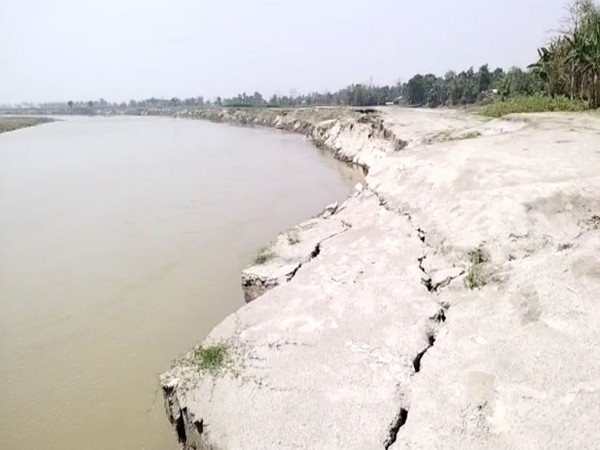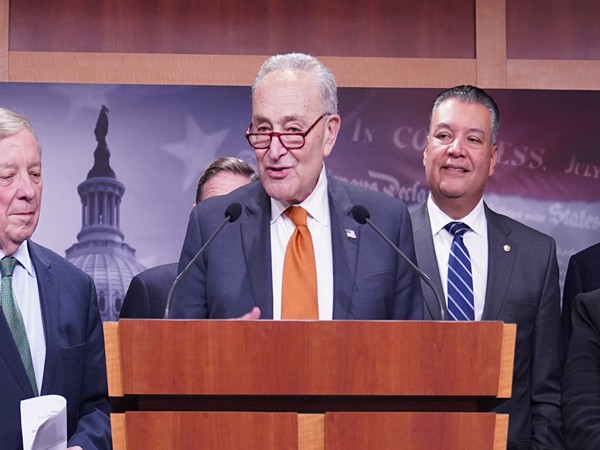Seven states reach 'historic' Colorado River water conservation deal
May 23, 2023
Washington [US], May 23: Seven U.S. states that depend on the overused Colorado River reached agreement to cut consumption.
A river that provides drinking water for 40 million people and irrigation for some of the country's most bountiful farmland.
In the agreement with the Biden administration, announced by the U.S. Department of the Interior, Arizona, California and Nevada will take 3 million acre-feet (3.7 billion cubic meters) less from the river through the end of 2026, an amount equal to 13% their allotment.
Those three make up the Lower Basin states of the century-old Colorado River Compact, which assigns water rights to them plus the four Upper Basin states of Colorado, New Mexico, Utah and Wyoming.
While the Upper Basin states draw their water directly from the river and its tributaries, the Lower Basin states depend on Lake Mead, the reservoir created by the Hoover Dam and whose spigot is controlled by the U.S. Bureau of Reclamation.
The river's long-term health is critical for the entire region, particularly for the economies of major cities such as Los Angeles, Las Vegas and Phoenix, Arizona, and the agricultural industry.
Monday's agreement clears a major hurdle for reaching a three-year plan for distributing water rights starting in 2024.
Without a deal, the federal government might have been forced to impose cuts, likely provoking a flurry of lawsuits.
The agreement, billed by the states as a "historic success," followed a year of arduous negotiations that featured two blown deadlines.
It was facilitated by an extraordinary deluge this year, particularly in California, that filled reservoirs and packed the mountains with snow.
Moreover, the Biden administration made it rain with $1.2 billion in grants under the Inflation Reduction Act (IRA) of 2022 that will compensate local water districts, cities and Native American tribes for cutting back on their water allotments.
"This year's hydrology was really important, and not only the rains in California," said Estevan Lopez, New Mexico's signatory to the deal as the state's commissioner to the river compact. "That made this possible, along with the funding from the IRA."
Now the seven states must go back to work on longer-term deal starting in 2027, most likely for 20 years, that must be reached without being able to count on rainy years or a flood of federal dollars, and with effects of climate change looming.
"We're back to the drawing board for post-2026. But we were going there anyway, even if this plan hadn't come up," Lopez said.
The Colorado River Compact has long been problematic as it was agreed following an usually wet period, misleading signatories into believing more water was available to them.
The river has been further strained by rapid population growth and, in this century, a historic drought that - until this year's rains - threatened to drain reservoir levels below the intake valves that deliver water downstream and cut off hydroelectric production.
While significant, the deal leaves out two major river users: Mexico and Native American tribes.
Lopez said Mexico, which receives 1.5 million acre-feet per year under a 1944 treaty with the United States, has signaled a willingness to cooperate, and the tribes, which have an estimated one-fourth to one-third of the water rights, have been kept informed of the talks.
Source: Fijian Broadcasting Corporation








